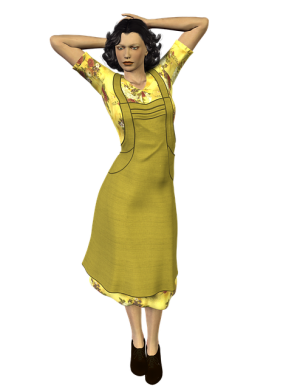niggling, picky, nitpicking on petty details ![]()
[adjective]
"Pietluttig" can be used to qualify a person nitpicking on petty details, AND to qualify the petty details this person is nitpicking on…
Related nouns are "pietluttigheid": petty detail, and "pietlut": nitpicker, which is more or less synonymous to "mierenneuker".
"Pietluttig" is also more or less synonymous to "kleinzielig": petty.
Examples:
– "Doe niet zo pietluttig over de kleur van de deur, dit is een prachtig huis!"
("Don’t be so picky on the colour of the door, this is a beautiful house!")
– "Beetje pietluttig van je om te klagen over Franks gedrag, terwijl jij mij ook verveelt met je onzin."
("You’re a bit of a nitpicker to complain about Frank’s behaviour, while you annoy me too with your nonsense.")
– "Het leven is een aaneenschakeling van pietluttigheden…" – "Ben je met het verkeerde been uit bed gestapt of zo?."
("Life is a concatenation of petty details…" – "Did you get up on the wrong side of the bed, or what?")
Related words:
– Kleinzielig: petty [adjective].
– Bekrompen: narrow minded [adjective].
Example:
– "Mensen zijn soms zo bekrompen…" – "Zeg dat wel."
("People are so narrow minded sometimes…" – "You can say that again.")
– Mierenneuker: nitpicker [noun] [de mierenneuker, de mierenneukers].
– Muggenzifter: nitpicker [noun] [de muggenzifter, de muggenzifters].


 “Dampkring” is composed of “damp” en “kring”, which translate to “vapour” and “circle” respectively. The “vapour circle” around our planet is commonly known as the atmosphere 🙂 In Dutch, there’s also the synonymous “atmosfeer”.
“Dampkring” is composed of “damp” en “kring”, which translate to “vapour” and “circle” respectively. The “vapour circle” around our planet is commonly known as the atmosphere 🙂 In Dutch, there’s also the synonymous “atmosfeer”. A “flater” is a stupid mistake in front of other people causing embarrassment. It’s more or less synonymous to “blunder”, which also translates to blunder, but the subtle difference is that a “blunder” is not necessarily witnessed by other people (causing the embarrassment).
A “flater” is a stupid mistake in front of other people causing embarrassment. It’s more or less synonymous to “blunder”, which also translates to blunder, but the subtle difference is that a “blunder” is not necessarily witnessed by other people (causing the embarrassment). An old-fashioned Dutch dinner consists of one simple course: beans or potatoes, meat and vegetables (see also Extra). Simple or not, there’s always the risk of spilling food on your clothes and making a bit of mess in the kitchen. That’s where an apron comes in handy, in Dutch a “schort“.
An old-fashioned Dutch dinner consists of one simple course: beans or potatoes, meat and vegetables (see also Extra). Simple or not, there’s always the risk of spilling food on your clothes and making a bit of mess in the kitchen. That’s where an apron comes in handy, in Dutch a “schort“.